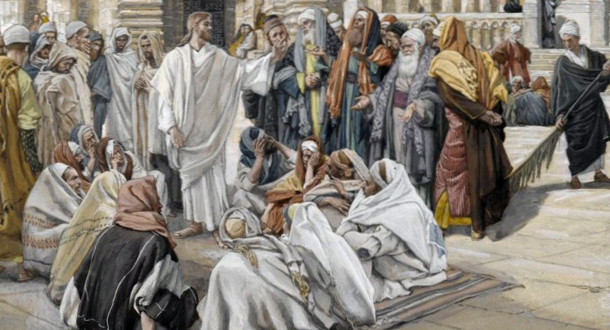
Memorial of Saint Charles Lwanga and companions, martyrs
Scripture:
Reflection:
I often notice that a cartoon, or even a stand-up comedian in his or her act, can ‘say’ things that might in other contexts lead to prosecution. Society at large, let alone rich and powerful individuals, make allowances for some message delivered in a way that makes the recipient laugh – often at themselves.
This is not a new phenomenon, allegory, satire and humour have been a way of influencing those with power throughout history. Witness the important role across cultures and history of the Court Jester! This seemingly powerless, clown-like person was often the one to change a ruler’s heart by alluding to some truth, or personal foible of the ruler himself or herself, and thus changing their mood or decisions.
Jesus likewise used allegory in the form of parables to ‘paint’ a word-picture that revealed deeper truths and clear messages of a moral or instructional kind. The genius of the stories was that the interpretation was not given, the listener remained free to ‘hear’ at the level they were capable of, and to act in accord with the message.
So often the poor and disposed heard the truth enshrined in these parables, and responded, whilst the rich and powerful were confronted and challenged and so often choose not to respond.
The courage of Jesus is often witnessed in the crafting of the parables too. His capacity to make a parable a microcosm of the crowd around him, and of their behaviour, was astounding.
Here today we see the same dynamic. Jesus addresses the scribes, chief priests, and elders, who are a part of his audience. They are listening to their own story and behaviour, acted out for them by the characters in the parable – the tenant farmers. They see their own violence, their selfishness and their unadulterated desire for possession of that is not theirs to own – all on display.
The truth confronts them deeply, and they are tempted to act out in a manner exactly as the parable portrays the actions of the tenants – but fear prevails, and they slip away.
They miss the opportunity for a conversion of heart inspired by the truth as revealed in the parable. Rather, they demonstrate a lack of capacity to hear and respond, and merely hear and react. As we will see, they allow self-deception to reign within their consciousness till it overwhelms them. In the course of the life of Jesus, they will become the ‘tenant farmers’ and act out the parable to its bitter and sad conclusion. Rather than face the truth they destroy the source of the truth.
The ‘vineyard’ has now been given to us – we are the stewards of God’s creation and caretakers of the people of God. Let us serve with distinction.
Fr. Denis Travers, C.P., is the Provincial Superior of Holy Spirit Province, Australia.
